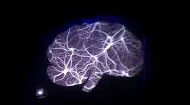People have long wondered about their existence and environments. What is matter and where did it
come from? Where did living things come from?
Is there a purpose to life? What are the causes of the sun, stars, rain, lightning, thunder, people, consciousness,
sickness, aging, death, and
other interesting phenomena? Over the centuries people created many answers to these and other important questions
that were/are difficult to answer.
History shows that many answers were wrong and the ignorance due to wrong answers was
usually harmful. The ignorance led to prejudice, vanity, overpopulation, oppression, wars, harmful medical treatments,
and much self-defeating thinking
and behavior. Today people are enlightened about certain influences on their lives, but continue to be ignorant of
other influences. The ignorance leads to self-centeredness, fears, unhappiness, and environmental degradation for everyone.
Perceivable Reality is a means for improving the answers to difficult questions. It is based on the
observable fact that every person has two kinds of inborn capabilities for determining reality. We have our
senses for detecting things, and we have our thinking ability to draw conclusions from what we see, hear,
feel, smell, and taste.
From birth to death we constantly sense things and draw conclusions about reality.
Often the conclusions are wrong due to our poor senses, poor thinking ability, or misleading evidence.
Most of us learn to trust
certain people around us, and these people often shape the way we think and influence our perceptions of reality. Had we been born
elsewhere on earth, our perceptions of reality would probably be much different because the thinking of people around us would
be different. Also, we have unconscious, inborn
tendencies that influence how we think. For example, we tend to think and behave in ways that cause us pleasure. A huge body
of evidence shows that people tend to think in ways that help meet their many needs.
Perceivable Reality requires understanding and overcoming personal biases when drawing conclusions from the evidence about reality.
If you sense that Perceivable Reality is not a simple reality, you are correct.
|








